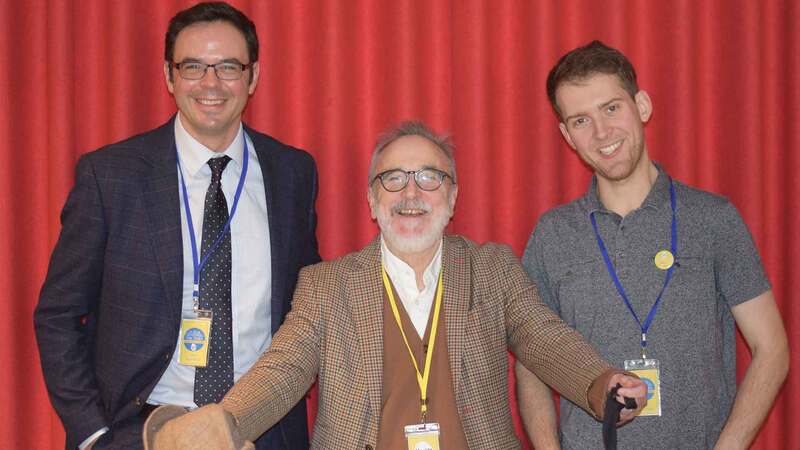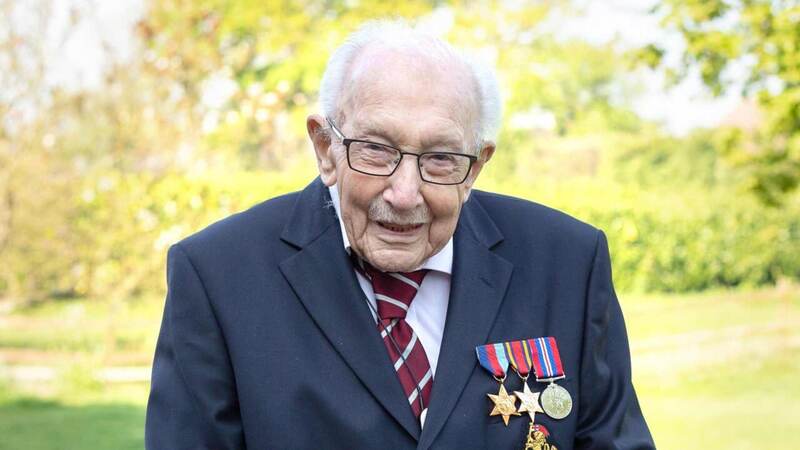You are viewing your 1 free article this month. Login to read more articles.
Outrage after children's author denied visa
An Iranian children’s illustrator has spoken of his “upset” over being refused a British visa to appear at the Edinburgh International Book Festival with one publisher branding the system “disgusting”.
The Bookseller has heard from publishers such as Comma Press and Saqi Books who have recently had their authors’ visas blocked through “bureaucratic traps” and “Kafka-esque potholes”. Meanwhile a festival organiser has also lamented the impact of visa restrictions on literary events.
Ehsan Abdollahi has had a standard visitor visa application declined for his visit to Edinburgh Book Festival next month. The illustrator was scheduled to host several children’s events and art workshops which publisher, indie press Tiny Owl, had secured funding for to fully cover the costs of his visit. For a standard visitor visa, applicants must provide “evidence that you can support yourself during your trip, such as bank statements or payslips from the last six months”. However, the Home Office deemed his financial documentation as insufficient and the letter stated: "I am not satisfied you have shown that your ties to Iran are sufficient incentive to leave the UK at the end of your proposed visit.”
Tiny Owl said it was the third consecutive year that its authors and illustrators had been denied entry to the UK in order to host children’s events at book festivals.
The letter to Abdollahi, a lecturer at the Tehran University of Art, from the British Embassy in the UAE, said his financial documents “did not demonstrate” the wage he claimed to earn, which caused officials to “doubt the credibility of the application”. The embassy also claimed his bank statement did not show where his funds originated from, but Abdollahi told The Bookseller he has saved money through 18 years of work.
The letter from the British Embassy on behalf of the Home Office cast doubt on Abdollahi's intention to return to Iran. It said: “Without evidence of the origin of this money, I am not satisfied that it is genuinely yours and available to fund the proposed visit. I note the documents you have provided do not satisfactorily demonstrate the current whereabouts or personal circumstances of any immediate family members remaining in Iran. Given this, I am not satisfied you have shown that your ties to Iran are sufficient incentive to leave the UK at the end of your proposed visit.”
Abdollahi told The Bookseller he was dismayed to miss out on the “new experiece” of the festival. He said: “I’d be lying if I said I didn’t get upset because attending Edinburgh Book Festival is important to me. It would have been a new experience for me and I could have interacted face to face with writers, publishers, readers and children – giving all of us a chance to gain and share new experience and information.”
The illustrator had travelled to Dubai to get the visa. He said: “When I saw that my visa application was rejected for reasons that didn’t seem logical to me, I got upset, but I tried my best and even travelled to Dubai to get the UK visa because it wasn’t easy for me to book an appointment in the UK Embassy in Iran. What was strange for me was that nobody interviewed me. It was just the submission of documents, fingerprinting, picture taking, and that was it. The UK visa process for Iranians is extremely difficult.”
He added: “Last year my colleague, Marjan Vafaian, who was also applying to attend Edinburgh Festival, had to stay three weeks in Dubai to hear she was rejected.”
“If my documents had been studied, it would have been obvious that I have been employed as faculty member in the University of Arts…this was the first time I felt ashamed of how small my salary was as a university lecturer. I have been working professionally from the age of eighteen and it is natural for me to have savings at the age of 36.
He added: “This is a time when we need intercultural dialogue more than ever.”
Delaram Ghanimifard, co-founder and publisher of the London-based Tiny Owl, described Abdollahi as “one of their most talented” illustrators. She has also raised the issue with Bermondsey and Old Southwark MP Neil Coyle to step in.
Ghanimifard said: “Abdollahi’s application has been refused on a number of petty technicalities and all of his events therefore now have to be cancelled.
“This is the third consecutive year that Tiny Owl’s authors and illustrators have been denied entry to the UK in order to host children’s events at book festivals. In 2016 Marjan Vafaian...had to cancel appearances in Edinburgh and London, and in 2015 an application was declined for Ali Seidabadi... meaning that he too had to pull out of similar events."
Ghanimifard added: "All this, at a time when it is education that can play a key role in reducing prejudice and combating stereotypes.”
The publisher said continued visa rejections were affecting the profitability of her company. “These repeated refusals are having an increasing impact on our own business. As a small independent publisher, book festivals play an indispensable part in promoting our books, and by extension the names of the authors and illustrators with whom we work. If we cannot bring our authors and illustrators to literary festivals, our events have less impact and our books do not sell,” she said.
An organiser at the Edinburgh International Book Festival revealed that two speakers had been refused visas for the event this year. Janet Smyth, children and education programme director for the festival said: “We never really get much of a reason [for refusals]. Odd things to do with citizenship or ‘problems with the application’.”
She added: “It definitely has an impact in terms of the breadth of authors/illustrators and this is particularly felt in the kids’ programme as authors in translation is a challenging thing to find."
Ra Page, founder and editorial manager of Comma Press said this issue was “something we're continually fighting with”.
He told The Bookseller: “Just a few weeks ago, we had this event planned for The Bluecoat in Liverpool, to coincide with a new exhibition of Larissa Sansour's work. But the author Talal Abu Shawish, who's at the forefront of a new wave of science fiction writing in Palestine, had his visa application rejected by the British embassy, so this event had to be cancelled.
“Similarly we've had to cancel or reconfigure a dozen or more previous events where writers have failed in their visa applications. In autumn 2014, for example, and again in 2015, award-winning writers like Nayrouz Qarmout and Mona Abu Sharekh were prevented from coming to UK, to read from The Book of Gaza, thanks to bureaucratic traps sprung by the visa application process. The forms are full of Kafka-esque potholes...In fact, the first time we invited the award-winning author Hassan Blasim to the UK, in 2009, his visa application was rejected because the letter of invitation was signed in black ink. The British embassy in Helsinki said his letter of invitation (from Comma and the festivals involved) were all photocopies. They weren't, but because they were signed in black ink, the embassy had grounds to claim they were photocopies.”
He added: “It was and remains disgusting.”
Elizabeth Briggs, publishing assistant for Saqi Books, said her company had faced similar issues. She told The Bookseller: “Numerous artists throughout the Shubbak Festival festival [the festival in the UK for Arab Arts and Culture] had problems I believe.
“Although some authors who were a part of the festival were able to join panels via Skype, the absence of Najwa Benshatwan from Libya (shortlisted for the International Prize for Arabic Fiction) and Nadia Al-Kokabany from Yemen, whose novel The Ali Market is a tale of Yemeni revolution, both had their visas turned down last minute and were unable to join the festival at all.”
She described it as a “crushing disappointment” for the authors and for the general public as around 80 people turned up at the British Library for the panel 'Under the Radar: Women Writing from outside the Arab Mainstream' on 16th July which both Najwa and Nadia were supposed to form a part of.
Organisers of the Caine Prize also confirmed to The Bookseller that it had recently experienced visa difficulties with two of its authors from Sudan and Nigeria although managed to secure the visas in the end.
When the Home Office introduced an Australian style points-based system in 2008, it also abolished the Artist, Writer and Composer Visa that had allowed many international artists to work in the UK. Artists attending their own exhibition, or authors attending their own book launch, found that they were denied a visa on the basis that they would be 'working' even though they did not have an employer in the UK.
Campaigning charity English PEN worked with regulation campaign group Manifesto Club to initiate revised visa rules in favour of artists including a signed letter from 120 artists and writers. The government responded by introducing several new measures: a 'sponsorship' scheme for creative workers, a 'permitted paid engagement' scheme for short artist visits, and the 'Exceptional Talent' visa.
English Pen’s communications and campaigns manager, Robert Sharp told The Bookseller that the visa refusal was “a worrying decision”. He said: “It denies Ehsan Abdollahi the chance to speak about his work, and it denies British audiences the chance to meet and learn from an internationally acclaimed artist.
"Book festivals are a fantastic way to promote cultural exchange and the British publishing industry. Unfortunately, the rigid UK visa requirements can prove an impossible hurdle for some artists.”
He added that in recent years the Home Office had developed routes for artists to visit the UK, and ministers have always said that they want to encourage artists to visit, but said this case shows that there are still "gaps" in its provision. "The government should review how the system is working for festivals and small arts organisations," he said.
The Home Office is yet to respond to a request for comment.

















